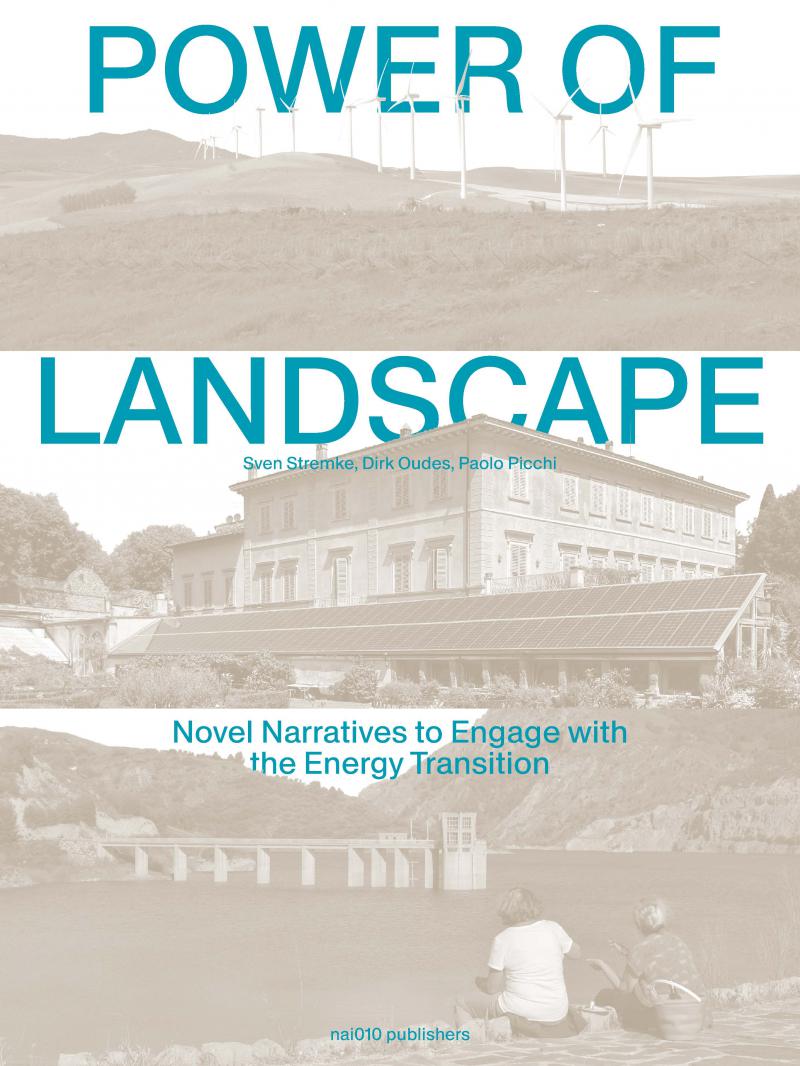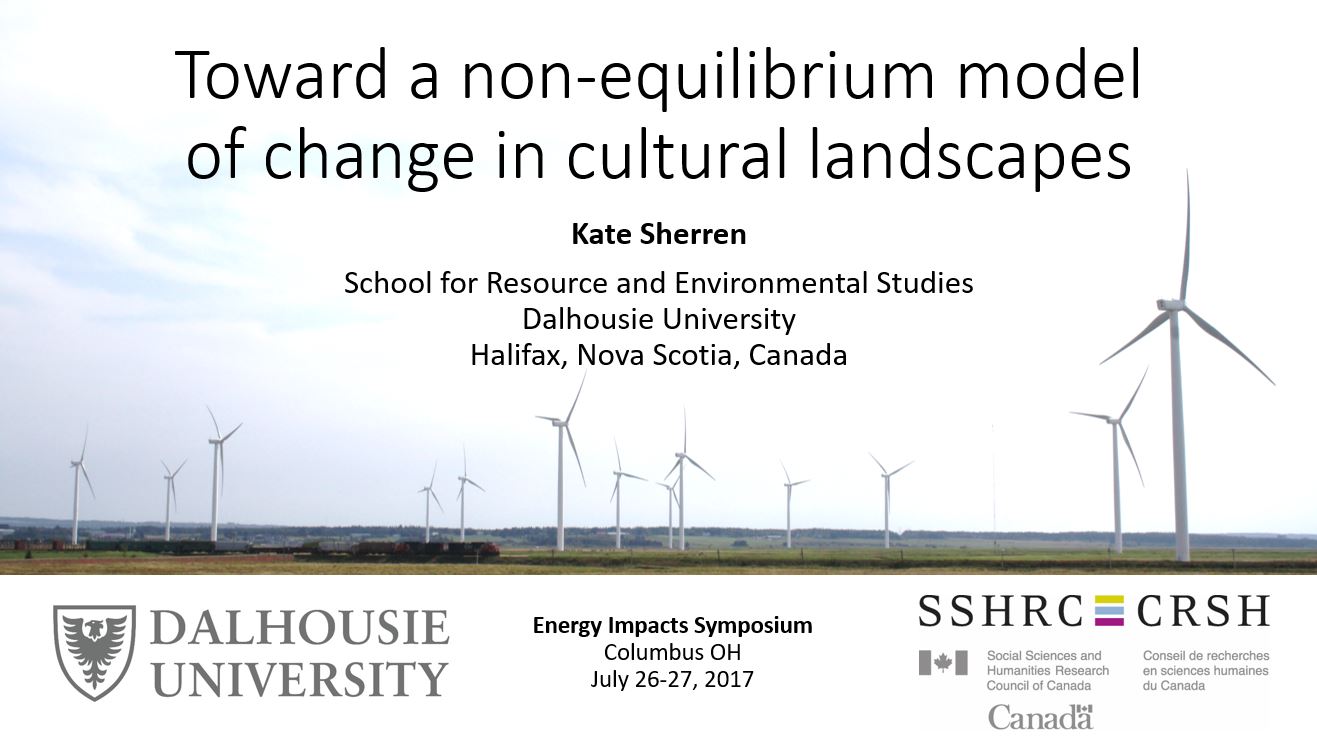 Just in time for Christmas, I see that the new book by Oudes, Stremke and Picchi to which I contributed an essay is now available to order. It will be a beautiful offering: the Europeans generally do books beautifully, but particularly so here thanks to the architects leading the project and their attention to visual detail. Edge to edge photos, maps and essays from some of the most interesting folks in Energy thinking. I am delighted to be involved and looking forward to my copy landing in October. My essay reflects on some of my early work on climax thinking and what it means for progress in energy transitions, with a few accompanying photos from case study locations in New Brunswick (the Mactaquac dam headpond) and Nova Scotia (the Tantramar outside Amherst).
Just in time for Christmas, I see that the new book by Oudes, Stremke and Picchi to which I contributed an essay is now available to order. It will be a beautiful offering: the Europeans generally do books beautifully, but particularly so here thanks to the architects leading the project and their attention to visual detail. Edge to edge photos, maps and essays from some of the most interesting folks in Energy thinking. I am delighted to be involved and looking forward to my copy landing in October. My essay reflects on some of my early work on climax thinking and what it means for progress in energy transitions, with a few accompanying photos from case study locations in New Brunswick (the Mactaquac dam headpond) and Nova Scotia (the Tantramar outside Amherst).
Tag: energy transitions
 Matt Dairon, John Parkins and I now have a chapter out on Matt’s Masters work at U of A in Governing Shale Gas: Development, Citizen Participation, and Decision Making in the US, Canada, Australia, and Europe. Our chapter is near the back, chapter 17 of 18: Seeking common ground in contested energy technology landscapes: Insights from a Q Methodology study. While the book is about shale gas, this case study uses the same concourse as another recent paper, but in sites of shale and wind farm development in southwestern Alberta, and with interviews to bring nuance.
Matt Dairon, John Parkins and I now have a chapter out on Matt’s Masters work at U of A in Governing Shale Gas: Development, Citizen Participation, and Decision Making in the US, Canada, Australia, and Europe. Our chapter is near the back, chapter 17 of 18: Seeking common ground in contested energy technology landscapes: Insights from a Q Methodology study. While the book is about shale gas, this case study uses the same concourse as another recent paper, but in sites of shale and wind farm development in southwestern Alberta, and with interviews to bring nuance.
Edited by John Whitton, Matthew Cotton, Ioan M. Charnley-Parry, and Kathy Brasier, this book:
“… attempts to bring together critical themes inherent in the energy governance literature and illustrate them through cases in multiple countries, including the US, the UK, Canada, South Africa, Germany and Poland. These themes include how multiple actors and institutions – industry, governments and regulatory bodies at all scales, communities, opposition movements, and individual landowners – have roles in developing, contesting, monitoring, and enforcing practices and regulations within unconventional oil and gas development. Overall, the book proposes a systemic, participatory, community-led approach required to achieve a form of legitimacy that allows communities to derive social priorities by a process of community visioning. This book will be of great relevance to scholars and policy-makers with an interest in shale gas development, and energy policy and governance.”
The last two days I spent at the gigantic Ohio State University in Columbus, Ohio (it has it’s own traffic radio station), in a gaggle of energy impacts social scientists. The Energy Impacts Symposium was a product of a US NSF Research Coordination grant co-held by Jeffrey Jacquet (OSU) and Julia Haggerty (MSU). The event brought together some great keynotes on energy issues, including Benjamin Sovacool on energy justice, Monica Ehrman on energy realism, and Janet Stephenson on long-term shifts in energy cultures. Despite the heavy and understandable focus on the US shale experience, given what Stephenson described as the American “state of siege” by that fuel, the commonwealth made a strong showing. In addition to Stephenson, from New Zealand (and Ehrman, a Canadian living in the US), there was a strong contingent of Australian, UK and Canadian academics across all stages. It was a great opportunity to catch up with friends like Tom Measham and expand networks in those of us working under Westminster settings, that (thankfully) results in very different outcomes in governance and on the ground.
The engagement with scholars across career levels was very strong thanks in part to a competitive ‘Symposium Fellow’ program. A number of ‘Fellows’ were Commonwealth: Bec Colvin (ANU, my alma mater), who gave a fantastic talk on social rifts as a result of wind energy consultation in King Island, Nichole Dusyk, working across hydro and pipelines in postdoctoral work at SFU, and Eryn Fitzgerald (UVic) who as a Masters student among PhD and postdocs won second on the poster award for her work on indigenous hydro in BC. Leah Stokes (originally Canadian, now UCSB) gave a great talk on the degree of public backlash from wind projects. This is not to slight the Americans, of course. I saw a great presentation by Weston Eaton (Penn State) on biomass crops, and Julia Haggerty on ‘social license to exit’, as well as super posters by scholars such as Kristin Smith (MSU), Chris Podeski (Bloomsburg U of Penn), Meryl Gardner (Delaware) and the talented Anne Junod (OSU). Such riches of relevant research solidifies for me the value of prioritizing the attendance of problem-based, rather than disciplinary, meetings.
I was honored to receive a travel award to attend this event on the strength of my submitted abstract, Toward a non-equilibrium model of change in cultural landscapes. I was also grateful that the funding gave me a hard deadline for doing this planned synthesis around landscape emerging from SSHRC-funded work on energy (hydro and dam removal, renewable transitions) and agricultural dykelands. This presentation will now be converted to a chapter for a collected volume being co-edited by the conference steering committee this fall.

